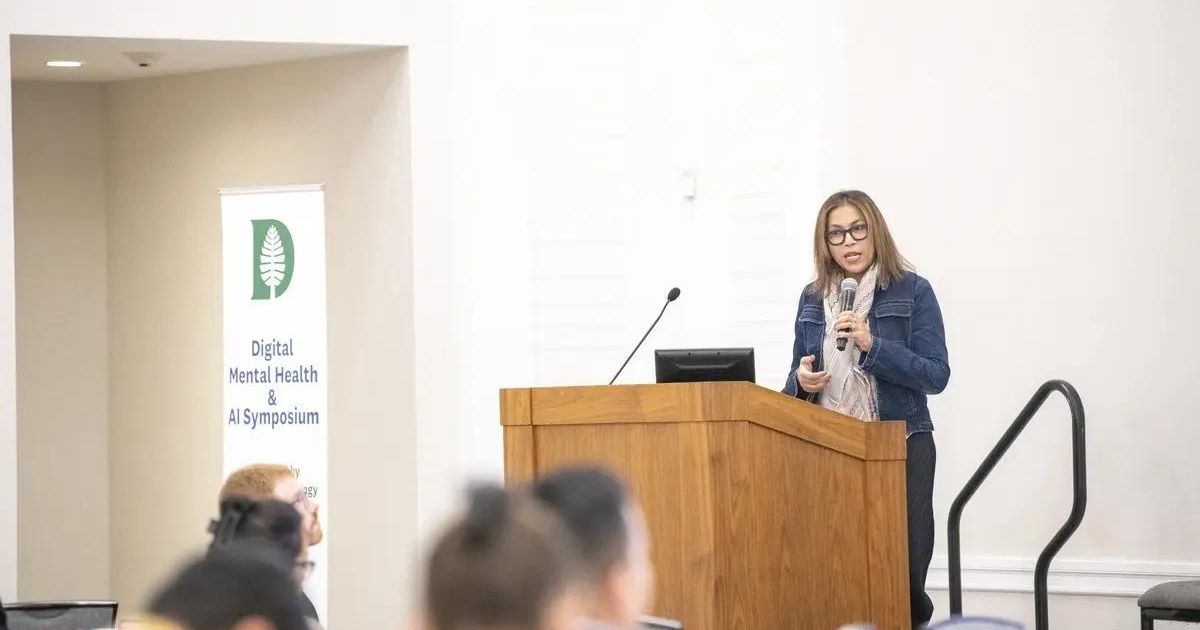Technology is offering new pathways to revolutionize the delivery of mental health care. From digital record keeping and virtual consultations to wearable devices that monitor well-being, mindfulness apps, and AI-driven chatbots, a wide array of innovations has emerged. However, experts argue that these digital mental health technologies have not yet been harnessed to their full potential.
Challenges Faced By Digital Mental Health Technologies
Cornell Tech Professor and Co-Founder of HealthRhythms, Tanzeem Choudhury, addressed these issues during a keynote presentation at the Digital Mental Health and AI Symposium, organized by the Center for Technology and Behavioral Health.
She delved into the challenges that have hindered digital mental health from fully realizing its early promises and explored ways to overcome these obstacles.
One of the major hurdles is the complexity of mental health tools, which draw data from various devices and sources, aiming to provide solutions for different stakeholders, including patients, healthcare providers, and insurers.
These tools must also remain reliable across individuals and over time, creating a formidable challenge. Choudhury stressed the importance of prioritizing clinical utilization and integration when developing applications.
Crucially, Choudhury emphasized the need to build users’ trust in this technology, highlighting that “adoption moves at the speed of trust.” Trust in digital mental health tools is essential for their widespread acceptance and effectiveness.
President Sian Leah Beilock opened the event, underscoring the significance of health and well-being, particularly on college campuses. She emphasized the university’s commitment to prioritize well-being as both a campus focus and a global research initiative.
The symposium brought together leading experts to discuss how emerging technologies are reshaping the landscape of mental health care. It also provided a platform to address the challenges of translating promising research into practical applications that are not only beneficial but also ethical and equitable.
One of the panel discussions, titled “Navigating New Frontiers: Generative AI and Passive Sensing in Mental Health,” explored how cutting-edge technologies are allowing researchers to reimagine their approach to mental health care.
Passive sensing, which involves gathering data from everyday devices like smartphones to track individuals’ well-being in their daily lives, was a focal point of discussion.
The integration of artificial intelligence (AI) in mental health care holds transformative potential. It promises faster, more effective, and potentially personalized treatments, as well as improved accessibility and affordability of services. However, it also poses ethical and privacy challenges that must be addressed.
Bill Hudenko, an assistant professor in the Department of Psychological and Brain Sciences and CEO of Everpage, highlighted the current state of mental health care, describing it as the “dawn of the renaissance of mental health.”
Simultaneously, he acknowledged the high risks and challenges faced in this evolving landscape.
In essence, the symposium provided a platform for experts to examine the intersection of technology and mental health care.
While technology offers tremendous promise for improving mental health services and accessibility, there are complex challenges to overcome, including trust-building, ethical considerations, and privacy safeguards.
As the field of digital mental health continues to evolve, it becomes increasingly important for researchers, practitioners, and policymakers to collaborate in developing innovative solutions that prioritize the well-being of individuals and promote equitable access to mental health care.






















